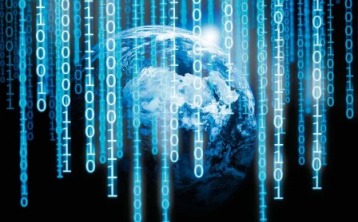We are drowning in data. We want to experience more and more but know less and less…
 A while ago I wrote a few paragraphs about this concern and complained about being always connected, available, online at daytime and at night while I´m sleeping. My smartphone constantly provides updates from my email account, my facebook page, sms and whatsapp. Additionally I have two apps that keep me up to date for special offers on ebay, amzon etc. Now I stumbled upon an article that treats exactly this issue that affects me so much… Mark Hurst – an expert for user experience – argues that the new technologies are enslaving us.
A while ago I wrote a few paragraphs about this concern and complained about being always connected, available, online at daytime and at night while I´m sleeping. My smartphone constantly provides updates from my email account, my facebook page, sms and whatsapp. Additionally I have two apps that keep me up to date for special offers on ebay, amzon etc. Now I stumbled upon an article that treats exactly this issue that affects me so much… Mark Hurst – an expert for user experience – argues that the new technologies are enslaving us.
He even compares this problem with the global ecological crisis. We can notice notice this crisis every day at the university. Sometimes professors have trouble reaching the students behind their computers, BlackBerrys, iPhone’s because they are constantly switching attention between the online- and offline world. Mark Hurst speaks also for protected thinking areas that can be helpful to recover. Every year we leave the city to go to some place nice to restore our energy our work force. But usually we don’t leave our digital devices at home. We also need vacation from being online.
The German news magazine ‘DER SPIEGEL’ also treated this topic and comes up with some interesting thoughts that I don’t want to keep back. The convenience is that the Internet simplifies our life a lot. We are able to shop, chat, book flights, read newspapers … from one spot. And this is also the great disadvantage – the oversupply of information. A web design blog I recently read even stated that information overload can cause poor decision making, lack of focus, lack of strategic thinking, a breakdown in social and team skills and even health problems. But almost anyone participating in our ‘modernized’ life style is exposed to tons of data. ‘DER SPIEGEL’ published an interesting research study that was done by the US consulting firm ‘RescueTime’ examined the browsing behavior of 40,000 employees. According to this study an average employee would check his email account 50 times a day, open an instant messenger program 77 times and browse 40 different websites.
‘Is GOOGLE making us silly?’
The American author Nicolas Carr, a former student at the Harvard University and also member of the editorial board of advisors of the Encyclopædia Britannica, published this interesting article on this topic. It is worth reading it.
This really alarming article deals with the effect the excessive usage of the Internet does to our brains. It seems as we wanted to banish the nasty paper from our every day life and replace it with e-readers and other fancy touch devices or other computers but actually we banished thoughts and knowledge. I notice that myself. I read less, sometimes it is really is hard to concentrate for a longer time or read several pages in a row. Browsing the Internet I don’t read – I try to skim some of the information that hits me and I jump from link to link because I just can’t let go and it is impossible to get to the final page researching one topic. We don’t have to think anymore because GOOGLE and Wikipedia are always at hand providing us with any answer without the need to use our brainpower.
And I also experienced the phenomenon of procrastination (which is a recognized mental disease by the way) by being constantly distracted or distracting myself doing this and that or any other bullshit with my smartphone/ computer wasting my time. Because there is constantly any kind of news on the screen, a new email a new article, a new video. According to Carr as human beings it is our nature to always gather and perceive as much information as we can. When we were cave men and cave women is was quite important to know all and everything, about the stuff that was going on around us. In order to survive we continuously had to check our environment for food and saber-tooth cats. But un the 21th century, where the amount of information is inconceivable, we get lost.
We can just guess how our social interactions and information habits will look like in 50 years or more. But at least I know I’m not the only one who feels this way. Even Nicolas Carr notices about himself: “Once I was a scuba diver in the sea of words. Now I zip along the surface like a guy on a Jet Ski.“
Quote of the day:
„Anyone can do any amount of work, provided it isn’t the work he is supposed to be doing at that moment.”
Robert Benchley



